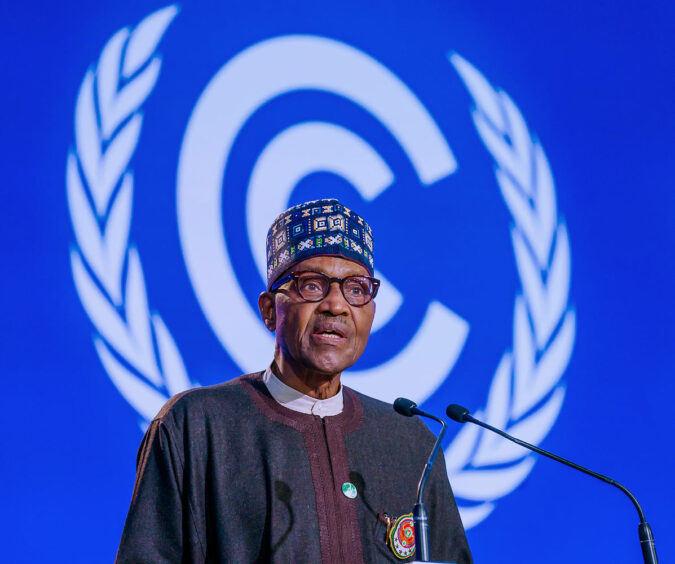
Nigeria has committed to reaching net zero by 2060, President Muhammadu Buhari has said at the ongoing COP26 talks in Glasgow.
No one in Nigeria needs to be persuaded about the importance of tackling climate change, he said.
“Desertification in the North, floods in the centre, pollution and erosion on the coast are enough evidence,” the president said. “For Nigeria, climate change is not about the perils of tomorrow but what is happening today. Nigeria is committed to net zero by 2060.”
Gas support
Buhari also called for international partners to support “transition fuels”, in which he included gas developments.
“Nigeria is actually more of a gas than an oil producing country. Consequently, I am requesting for financing of projects using transition fuels, such as gas,” the president said.
“Nigeria has energy challenges for which, we believe, gas can be used to balance a renewable energy-based system, be it wind or sun. This would enable us launch the long-term renewable energy infrastructure procurements and investments needed to have a sustainable energy supply.”
The country expects to use gas until 2040, he said. Such a move would be in line with the goals of the Paris Agreement. This called for limiting temperature increases to 2 degrees Celsius and trying to reach an increase of only 1.5 degrees.
“Gas will be key for addressing the clean cooking challenge, which is also a challenge of deforestation, and for giving our electric grid the stability and flexibility to integrate renewables at scale. Nigeria will need to integrate an unprecedented 7GW additional renewable capacity each year to achieve net-zero,” he said.
Energy access is a priority for Nigeria, and many parts of sub-Saharan Africa.
Nigeria has set out an Energy Compact, which involves providing electricity to 5 million households. It also covers providing solar power to 25 million people.
The scale of spending required is substantial. Nigeria needs $1.5 trillion in infrastructure investment over the next 10 years, he said.
While there has been some criticism of the target of 2060, this still represents a major step for Nigeria. It mirrors similar declarations from India, which made a commitment to reach net zero by 2070.
Recommended for you

